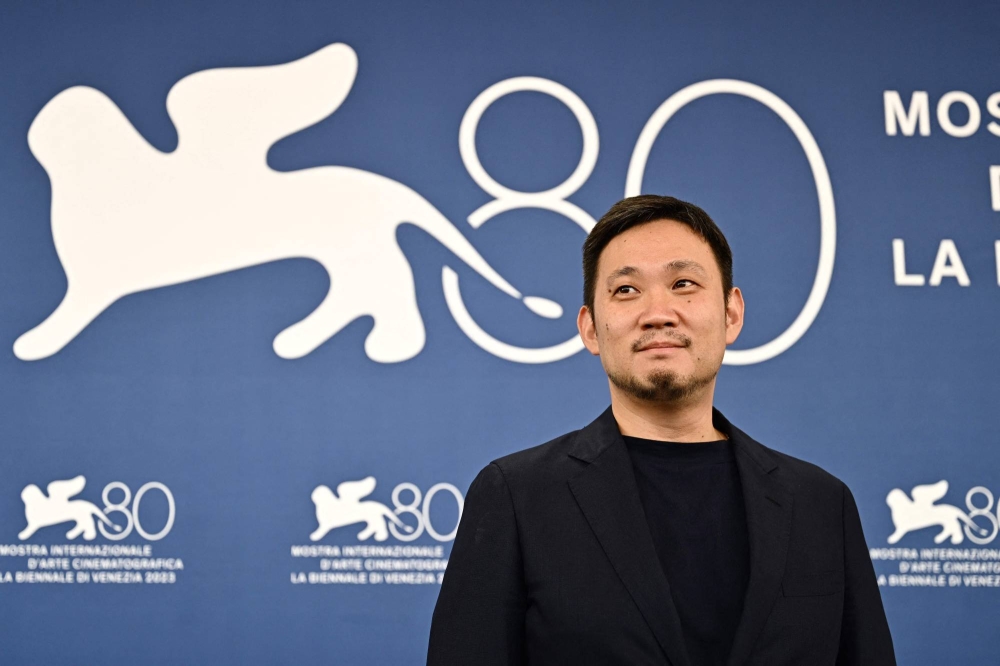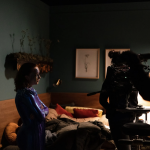Aryan Tauqeer Khawaja interviews Academy Award-nominated filmmaker Ryusuke Hamaguchi about his latest film, Evil Does Not Exist.
Out of all the filmmakers to have emerged in the 2010s, few have carved out a career as inimitable as Ryusuke Hamaguchi. Under the tutelage of an equally peerless filmmaker at the Tokyo University of the Arts, Kiyoshi Kurosawa, Hamaguchi first drew mainstream attention in Japan with his graduate film passion, which was selected for the competition section of the 2008 Tokyo Filmex Film Festival. Following Voices from the Waves, a documentary about the survivors of the 2011 Tōhoku earthquake and tsunami, and Heaven Is Still Far Away, his behemoth 2015 feature Happy Hour premiered at that year’s Locarno Film Festival, where it received a special commendation for its script. Hot off the heels of international attention, Hamaguchi’s next film earned (if any doubt remained) The New Yorker critic Richard Brody’s description of the filmmaker as “a genius of scene construction”, with 2018’s masterful Asako I & II competing for the Palme D’Or at the Cannes Film Festival. 2021 marked a history-making turn for the Japanese auteur- not only did Wheel of Fortune and Fantasy win the Silver Bear at the Berlinale, but Drive My Car became the first ever Japanese film to receive a Best Picture nomination at the Academy Awards. The film won Best International Feature that year, whilst Hamaguchi himself became only the third ever Japanese director to be nominated for Best Director.

His follow-up feature to Drive My Car, Evil Does Not Exist– which won both the Grand Jury Prize at the Venice Film Film Festival and the Best Film award at the BFI London Film Festival last year- is decidedly different. Where preceding entries in Hamaguchi’s entry were composed of intersecting narratives between myriad groups of characters forming often deeply personal connections, and hence relying heavily on dialogue, Evil Does Not Exist largely forgoes such sentiment in favour of long stretches of silence, with a score by Eiko Ishibashi- now a regular Hamaguchi collaborator- doing most of the talking. The film is characterised by a potent indignation – where Hamaguchi’s prior features channelled his durational tension towards romance and its repudiation, this channels it towards the severing of routine (formal and narrative) and human connection by distrust. It soon becomes apparent why the film was made in such close synchronicity with, and almost as a response to, Eiko Ishibashi’s score, seeing as it very much embodies the creeping but inevitable explosion of retribution that characterises the film’s proceedings. In a conversation with the director, Aryan Tauqeer Khawaja discusses Chekhov, long takes and the question of what it means to make a “political” film.
JOURNAL: You’ve mentioned that Evil Does Not Exist came about as a result of the composer, Eiko Ishibashi, asking you to create footage for a live musical performance. What are the main differences for you, as a filmmaker, when you’re directing a film based on a score versus when you’re directing based on a script?
RYUSUKE HAMAGUCHI: So, it wasn’t actually the case that there was a main score that I was making the film to the tune of. There was some demo music that she [Eiko] had sent me in advance music, what is considered as the main theme for Evil Does Not Exist was actually made after the film was shot and edited, and so there was no real music that the film was necessarily based off of. In that sense, it’s not so different from my usual filmmaking style. But what is quite different is that because we had worked on Drive My Car together, I knew what kind of music Eiko Ishibashi made, and so I was thinking about how I could best create visuals that would fit very well with her music- so that was different.
JOURNAL: Your last film, Drive My Car, as well as Evil Does Not Exist, seem to draw heavily from Chekhov, and so I was wondering what it is about Chekhov’s plays that appeal to you as a filmmaker, and whether you share any of Chekhov’s philosophies of acting when you’re directing actors on set.
RYUSUKE HAMAGUCHI: Yes, with Drive My Car I certainly pulled from Uncle Vanya by Chekhov. There are people who have mentioned The Cherry Orchard by Chekhov as well as An Enemy of the People by Ibsen, when speaking about my film. But I can’t really say that these necessarily had a big influence on me or I was thinking about them even. I’m also not somebody who’s super knowledgeable about Chekhov per se, so I can’t really say that I’m super influenced by him. But as somebody who does write dialogue, I’m certainly very drawn to his dialogue writing and the dialogue that he has written. I’m a little bit embarrassed to quote my own movie, Drive My Car, when I say that there is something very special about his dialogue. When actors say his dialogue, there’s something very different about the quality that it draws out- the quality of emotion that it draws out of the actors. I certainly don’t know how Chekhov wanted these lines to necessarily be said, but when I asked my actors to say the dialogue, I wanted them to just honestly speak it, and it just naturally drew out a lot of emotions. As a writer of dialogue myself, I wish to be able to write dialogue that can have that effect on the public.

JOURNAL: I’ve seen Evil Does Not Exist twice now, and seeing the film the second time around, I was struck by how the ending reframes the narrative arc of the film, where it almost seems like an inevitable personal response: inevitable personal violence to the violence of institutions. At what point in your creative process did you decide the film would end the way that it does?
RYUSUKE HAMAGUCHI: There’s a lot of research that went in before starting to write the script, and it was really only after a lot of the elements that I then went ahead and wrote the script. This ending really just came to me very naturally as I was writing. You mentioned the word “inevitable” a few times, and this inevitability is a certain feeling that I had whilst I was writing the ending. It’s also a word that appears within Eiko’s work as well. So, I think I wanted to be able to feel this sense of inevitability, and I think I’m interested in films that do that as well. I can name filmmakers such as Fritz Lang and Kiyoshi Kurosawa- those two filmmakers, I think, give me that pleasure and that feeling of inevitability through the work that they make.
JOURNAL: In terms of making the film- the way that it uses long takes and long sequences of unbroken images is, I think, similar to your other films, The difference is noticeable there, though, in that whenever a long take is held on an object, you as a viewer are constantly anticipating something violent or destructive to happen at the end of that long take, and so there’s a near-constant sense of dread. How, when you were making the film, did you feel about using these long takes?
RYUSUKE HAMAGUCHI: In terms of the intention behind using long takes, I think ultimately the long take exists because time that passes in that period just feels good. I do shoot these shots with the possibility to edit in a way where it does not have to be a long take. But if there’s no reason to have to cut that take, if I feel that we could continue to watch through this one particular angle, and if I feel that there’s no need to cut in a way that is explanatory. But I think the result from long takes is that they have a certain smoothness to them that can maybe create this sense of dread, because the fact that we can actually keep watching something, on the flipside, might make us think “Okay, when does this feeling of harmony end? When does this all destruct?” This is something that I just thought about as I talking about it, but I think this something that I hope my films can do, and so if it was successful in that, I’m very happy that it accomplished that.

JOURNAL: I’ve heard many critics describe Evil Does Not Exist as a “political” film, and I wondered, when it comes to the film, what you see as specifically political, and whether you would call the film “political”.
RYUSUKE HAMAGUCHI: I don’t think a film exists that is not political, but I think critics say that often because many of my past films often deal with individual relationships and relationships between people. Ultimately, society is created out of various individual relationships, and society is also political, so I don’t necessarily consider this film to be more political than the other films that I have made. That being said, I think in making a film that would suit Eiko Ishibashi’s music, I figured that it shouldn’t be as similar to my past films, which had dialogue as being very central, and I felt that dramas that are depicting relationships between individuals may not necessarily be suited for Eiko’s compositions. So, I think that did result in a different kind of framing that I did within the film, and results in a different quantity of people appearing within the film as well.
Evil Does Not Exist, directed by Ryusuke Hamaguchi, is released by Modern Films in UK and Irish cinemas on 5 April 2024: modernfilms.com/evildoesnotexist. Watch the trailer for the film below.
Note: A special one-off Green Screening of Evil Does Not Exist will be taking place at Picturehouse Central on 7 April, followed by a live panel discussion surrounding the themes of balance, harmony and nature in the film. Tickets for this screening are available at the following link: https://www.picturehouses.com/movie-details/022/HO00014426/green-screen-evil-does-not-exist-panel




